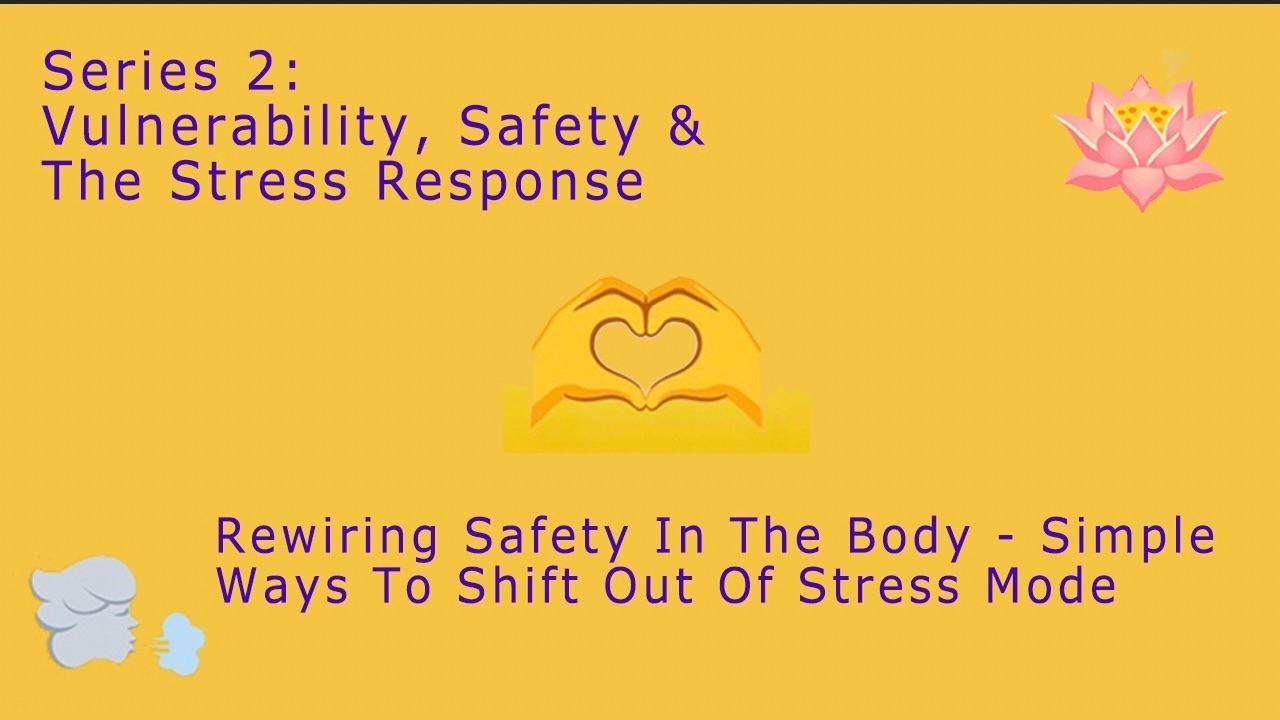Rewiring Safety in the Body – Simple Ways to Shift Out of Stress Mode.
May 05, 2025
Do you ever feel like no matter how much you rest, your body never fully relaxes? Or that even when you’re physically safe, your mind and emotions feel like they’re still stuck in high alert?
This is because stress doesn’t just live in your thoughts—it’s stored in your body.
When you experience prolonged stress or emotional overwhelm, your nervous system adapts by staying in survival mode, making it harder to feel calm, grounded, or emotionally steady. The good news? You can teach your body to feel safe again.
By rewiring safety in the body, you break the cycle of chronic stress, reduce emotional reactivity, and build resilience from the inside out.
Why Feeling Safe is Essential for Emotional Resilience
Your nervous system is designed to detect threats—but it doesn’t just respond to physical danger. It reacts to:
🔹 Work pressure & deadlines
🔹 Unresolved emotional stress
🔹 Difficult conversations & conflicts
🔹 Long-term exhaustion & burnout
When stress is constant, your body stays stuck in fight, flight, freeze, or fawn mode, even when no real danger exists. This makes it harder to:
❌ Regulate emotions – Small stressors feel overwhelming
❌ Stay present in the moment – Your brain stays in hypervigilance
❌ Fully relax – Your body holds onto tension and exhaustion
The solution? Teach your body how to shift into a state of safety and calm.
How to Rewire Safety in the Body
To move out of chronic stress mode, your body needs repeated, gentle reminders that it’s safe to relax. Here’s how:
1️⃣ The Vagus Nerve Reset – Signal Safety in 60 Seconds
The vagus nerve is the direct connection between your brain and body, controlling how quickly you shift from stress mode to calm mode.
🚀 Try This:
• Place one hand on your chest and one on your belly
• Inhale deeply for 4 seconds
• Exhale slowly and completely for 8 seconds
• Repeat for 1–2 minutes
Why It Works:
This stimulates the vagus nerve, which sends a message to your nervous system: “You are safe. You can relax now.”
2️⃣ Use Grounding Techniques to Bring You Back to the Present
When stress builds up, grounding your body in the present moment helps you shift out of overthinking and emotional overwhelm.
🚀 Try This:
• Press your feet firmly into the ground
• Name 5 things you can see, 4 things you can touch, 3 things you can hear, 2 things you can smell, 1 thing you can taste
• Rub your hands together and feel the warmth
Why It Works:
This brings your focus back to the present and signals to your nervous system that the moment is safe.
3️⃣ Shake Out Stress – Release Stored Tension from the Body
Stress doesn’t just stay in your mind—it gets stuck in your muscles and nervous system.
🚀 Try This:
• Stand up and shake your hands, arms, and legs for 30 seconds
• Take a deep breath and exhale with a sigh
• Roll your shoulders and release any tightness in your jaw
Why It Works:
This discharges stored stress energy from the body, preventing it from accumulating and causing burnout.
4️⃣ Create a “Micro-Moment of Safety” Every Day
The more often you signal safety to your nervous system, the faster your body learns how to shift out of stress mode.
🚀 Try This:
✅ At Work – Take a 1-minute pause between meetings to breathe and reset
✅ At Home – Light a candle, listen to soft music, or take a warm shower to activate relaxation
✅ Before Sleep – Place a hand on your heart and tell yourself: “I am safe. I can rest.”
Why It Works:
The smallest cues of safety help your nervous system trust that it can let go of stress.
Safety is the Key to Long-Term Resilience
Building resilience isn’t about eliminating stress—it’s about teaching your body how to return to safety faster.
Every time you:
✅ Breathe deeply instead of reacting immediately
✅ Ground yourself in the present moment
✅ Release stored stress instead of holding onto it
…you’re rewiring your nervous system to respond with calm rather than crisis.
💡 Next Up in This Series: Building Emotional Trust – Feeling Safe to Express Yourself Without Fear.






